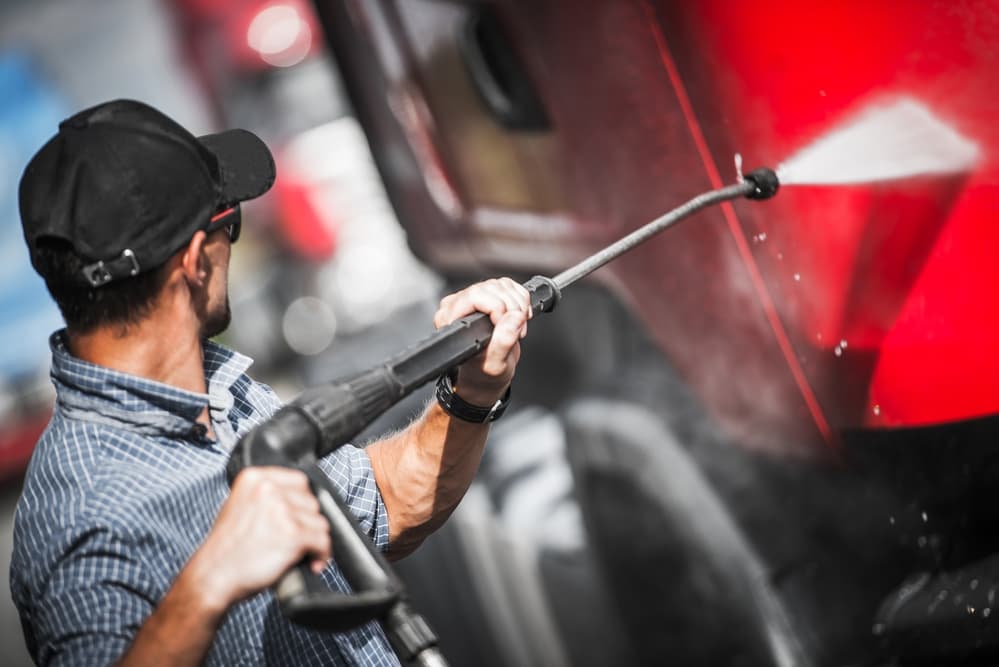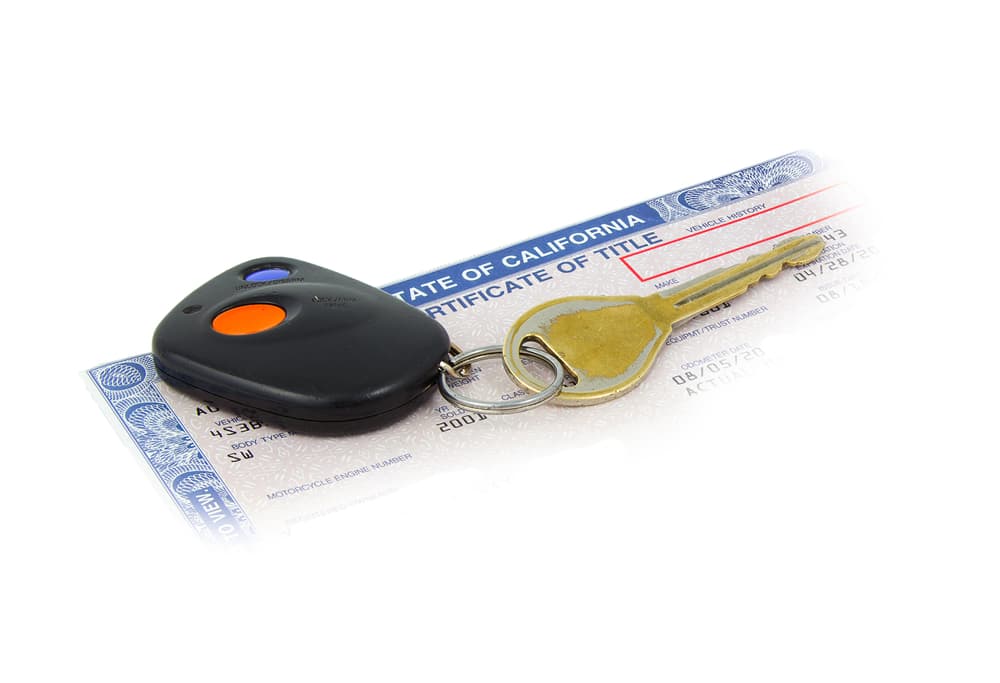Table of Contents
“How do I get started selling equipment as a private seller?”
So, you’d like to sell a semi-truck or maybe a piece of construction equipment online. Awesome! But there’s just one problem—you’re not exactly an equipment dealership. Dipping your toe into the pool of heavy equipment private sales can be a little intimidating. But it doesn’t have to be! If you follow the right steps and keep certain variables in mind, selling your equipment or commercial vehicle to potential buyers can be a snap. And who knows—maybe you’ll even enjoy the process!
The purpose of this guide is to walk you, a private seller, through the selling process for moving heavy equipment or commercial vehicle online in a way you and your buyer walk away happy.
Let’s get started!
To maximize your profits, you’ll want to prepare your truck or equipment for sale. So, what is involved in this preparation? Well, a few different things.

Equipment and Vehicle Maintenance
A truck or piece of equipment with a clean bill of health will help it stand out from other listings. More than just oil changes and tire pressures, it pays to address any issues you would have to disclose in your listing description so you can do so in the positive. However, getting your item up to snuff doesn’t have to cost an arm or a leg—or anything, if you know what you’re doing!
Learn About Equipment Maintenance from the Professionals
To help you remedy maintenance issues with the truck or equipment you’re looking to sell, we reached out to professional construction equipment and semi-truck mechanics to get their maintenance advice for heavy equipment and commercial vehicles.
Photographing Your Heavy Equipment for Sale

Most heavy equipment or commercial truck marketplaces will leverage uploaded pictures to promote your listings. Because listing images grab buyer attention even before many spec details in many instances, it pays to put some effort into your listing images. This being said, advances in smartphone camera technology mean that anyone is just a tutorial away from taking stunning equipment listing photos with the phone in their pocket.
Speaking of which…
Learn How to Take Head-Turning Equipment Images for Listings
To assist you in making your listings stand out to equipment buyers, we put together an in-depth guide explaining how to take pictures of your equipment or vehicles for sale.
The right buyer price can grab attention—whether in a good way or a bad way. Whether you’re trying to come up with a good asking price for your dump truck or your excavator, deciding on a number can be a real head-scratcher. However, when you take the time to determine the market demand for your item, factoring in depreciation, and how much you’d prefer to get for your equipment, you can begin to see a realistic price that makes sense.
Financing = Leading with Average Monthly Payments
As a private seller of heavy equipment or commercial trucks, partnering with a financing company that caters to equipment buyers can be a strategic move to make your listings more appealing. By offering financing options, you're not only broadening the pool of potential buyers but also simplifying their purchase decisions.
When you list your equipment, consider including an estimated monthly payment rate alongside the total price. This approach can be particularly effective as it helps potential buyers view the cost in terms of manageable monthly payments, rather than a large lump sum.
Presenting this financial breakdown can demystify the buying process, making it more accessible and less daunting for buyers. It's a small step that can significantly enhance the attractiveness of your listings, without veering into pushy sales territory. Remember, it's about providing options and clarity to facilitate a smoother transaction for both parties.
One such financing company is Lenco Capital—a My Little Salesman sister company dedicated to simplifying financing for buyers and sellers alike.
You're invited to learn about Lenco Capital and begin leading the equipment sales conversation with payments instead of full asking prices.
Remember: Most Buyers are Wary of Private Sellers
While being a private seller can work in your favor, it can also impact your ability to set higher asking selling prices. Because doing business with private sellers tends to be perceived as a bit riskier than with established equipment sellers, such as equipment dealers (not to mention harder to receive financing), most buyers interested in your items will expect a lower selling price. That’s likely why they’re open to buying from a private seller in the first place. So, remember this expectation when determining an asking price or you may be left wondering why you’re not getting as many bites on your listing.
10 Steps to Setting Pricing for Private Sellers
To assist you in determining a selling price you feel good about listing, we came up with a 10-step guide to pricing your heavy equipment or commercial truck. Just follow the steps and you should be golden!
After you have your equipment fixed, cleaned, photographed, and appropriately priced, it’s time to compile your listing. How exciting! This means that it’s time to put on your writer’s cap—just a bit, anyway.
How to Write Effective Listing Descriptions
Your listing description is more than just repeating the specifications in paragraph form—it is an opportunity to connect buyers with your equipment. Err on the side of honesty, tell the story of the equipment, keep your audience in mind while writing, and provide a straightforward description. If you’re ready to learn more about this, we created a comprehensive guide to writing effective listing descriptions for commercial equipment.
Using Records to Make Listings Shine
Buyers want to know as much as they can about a particular listing. This means that if you have maintenance and repair records for the equipment, show them off! Providing any records relevant to the listing not only tells the story of a well-kept piece of equipment but also of an organized and trustworthy seller.
Being a private seller may mean that your opportunities for listing may be a tad reduced due to a limited “marketing budget”— if you can call it that! However, there have never been more places to list your commercial truck or equipment for sale online.
Marketplace Websites Vs. Social Media
When listing your equipment for sale online, the two most popular choices are dedicated heavy equipment online marketplaces or more generic marketplaces built on broader social media platforms—such as Facebook Marketplace or Craiglist. And you very well may choose to utilize both! Still, it pays to understand the pros and cons of each before proceeding.
Heavy Equipment Marketplace Websites
When comparing a specialized heavy equipment marketplace website against the likes of, say, Facebook Marketplace, it’s true that there are far fewer eyeballs scrolling through the listings. Still, it is important to understand that the audience for these websites tends to be further along in the buyer’s journey—that is to say, they are more apt to buy than simply skim. Heavy equipment marketplaces also tend to offer more customer support to users—for buyers or sellers.
Social Media Marketplace Listings
When it comes to getting a large number of eyeballs on your equipment listings, you can’t do much better than social media websites. However, the number of views-to-sales ratio of social media sites can be fairly low—as such sites don’t contain as many serious buyers compared to folks who are just window shopping. Also, social media websites don’t tend to have the amount of fraud protection for either buyers or sellers of goods on their platforms in comparison to websites that depend on these purchases for revenue.
If you’re having a hard time deciding between heavy equipment marketplace websites or social media marketplaces, remember you can always opt for both! Just remember to properly manage your leads.
Beware of Scammers

When selling anything online, keep your guard up against those attempting to scam you out of equipment, funds, or sensitive information. Scammers are becoming increasingly sophisticated and convincing, so it is important to be able to spot suspicious behaviors, including:
- Offers that seem too good to be true
- Individuals asking you to confirm your identity via email or text-messaged passcodes
- Individuals asking you to log into special identification confirming systems
- Asking for any personal identification information (driver's license numbers, social security numbers, etc.)
- Someone overpaying you and asking for the difference paid back
- And many other schemes
If anyone asks you to do anything that makes you feel uncomfortable, report the individual to the website where the request was made. For more information about avoiding fraud, we have compiled a Guide to Fraud Prevention to help you avoid becoming the victim of scams against sellers.
When to Consider Partnering With an Auction Company
If some of your heavy equipment for sale isn't exactly getting many bites, you may consider partnering with an auction company. This approach offers a straightforward path to finding buyers, without the hassle of individual negotiations or advertising.
At auction, your machinery gains exposure to a wide array of potential buyers, all looking specifically for what you're offering. This setting increases the likelihood of a sale and potentially fetches better prices due to competitive bidding.
Selling heavy equipment or commercial trucks at an auction offers the convenience of a quick sale with the potential for competitive prices due to a wide buyer base. This being said, auctions also involve risks such as a lack of price control and possible lower returns due to auction fees and market variability. It's a trade-off between the ease and speed of an auction and the uncertainties of final sale prices and market conditions.
But when you simply need to move goods, you can trust the auction process to be handled professionally—ensuring your equipment is presented in the best light.
Listing your items is fairly straightforward. Communicating and negotiating with potential buyers, however, can often be the most challenging part of the process.
Know Your Rock-Bottom Price
Negotiating a price with interested parties can be quite exciting…if you know how low you can go. For this reason, it pays to crunch the numbers to determine your absolute rock-bottom price. Knowing this and sticking to it will keep you from worrying about losing your shirt simply because you were anxious to cut a deal.
Protect Yourself With a Contract
Once a price and terms have been agreed upon, it is important to draw up a sales contract that you and the buyer both agree to and sign. This contract will spell out which party is responsible for what services (inspections, shipping, taxes, billing, warranties, etc.). While you could always consult a lawyer for help with finding the best legal documents, there are a variety of sales contract templates that can be found online, including actual legal template services. Though using templates can make the process of drawing up a legal contract easy, it is crucial to remember that these are legally binding, so it is important to review them carefully or have them reviewed by a legal professional.
You’re almost done! However, before you sign anything or exchange any equipment for payment, you need to understand the various legal requirements involved in your transactions. You’re in for many more legal considerations and requirements before you swap keys for cash.
(On a side note, however: doing business in cash is not a great idea due to the lack of a paper trail.)
Does the Equipment Title Have a Lien or Other Owner?

Before you even take a squeegee to the windows to prepare a piece of equipment for sale, you need to be able to answer this question. If there is any reason why you cannot legally sell this piece of equipment—such as a lien or an additional owner—this can throw a monkey wrench in your entire sales process.
A clear title is a must. If there is a lien or any other name on the title, take the necessary steps to ensure you have the legal right to sell this equipment. And even if you have remedied such a situation, you will also need the necessary documentation to prove this has been done, such as a lien release—sometimes called a lien cancellation.
Do You Have Original Sales Documentation?
Because you are a private seller, buyers will be a bit more cautious when conducting business with you—if not wary of doing so at all. In addition to providing a clear title for the equipment or commercial truck, having your original sales documentation proving you legally purchased the equipment will bode well for your credibility.
Fulfill Your Post-Sale Responsibilities
Congrats—you’ve sold your gear! But you’re not done yet. After the sale, responsibilities such as the delivery or shipment of sold equipment, follow-up with buyers, and tax considerations must be addressed. If you’ve compiled your seller contract and other documentation properly, your responsibilities should be clear and ready to execute—so, knock ‘em out!
Up Your Sales Game With My Little Salesman
Whether you have 1 or 1,000 items of equipment to sell, My Little Salesman’s easy-to-use system can scale with you to help you with all of your sales needs.
- Easily build listings for every item with unlimited photos.
- Increase the exposure of your ads with featured listings and banners.
- Get help creating targeted Facebook ads for your items.
- Enjoy simple lead tracking and robust analytics via an advanced sales dashboard.
- Organize every facet of every transaction via the My Little Salesman Deals functionality.